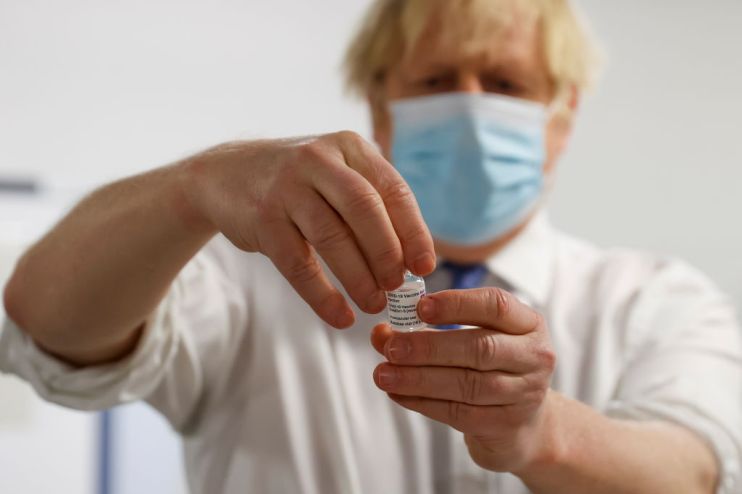Boris Johnson challenges EU after Italy blocks Astrazeneca vaccine shipment

Boris Johnson has challenged the EU’s decision to approve the blockade of 250,000 doses of the Astrazeneca vaccine from being shipped to Australia.
Italy yesterday announced it had blocked the shipment of vaccines made at its Anagni plant near Rome after the British-Swedish drug manufacturer failed to meet its EU contract commitments.
The European Commission gave newly-appointed Italian Prime Minister Mario Draghi the green light over the decision, after agreeding that there was a risk of breach of the EU’s advance purchase agreements.
But in a stern warning to the EU, Johnson’s official spokesman noted that Ursula von der Leyen, the European Commission president, had previously assured the Prime Minister that fresh restriction laws would not be used to block vaccine shipments.
Speaking at this afternoon’s Number 10 lobby briefing, the spokesman added: “We’re not privy to the specific agreements between other countries and vaccine manufacturers.
“However, the PM spoke to president von der Leyen earlier this year, and she confirmed that the focus of their mechanism was on transparency and not intended to restrict exports by companies where they are fulfilling contractual responsibilities.”
The European Commission implemented border controls at the end of January after Astrazeneca fell 75m doses short of the planned orders for the EU in the first quarter of 2021.
Italy is the first EU country to use the bloc’s new regulations allowing exports to be stopped due to supply shortages.
The World Health Organisation (WHO) has previously warned that the EU export controls marked a “worrying trend” that risked compromising global supply chains.
The PM’s spokesman added: “We would expect the EU to continue to stand by its commitments. The global recovery from Covid relies on international collaboration. We are all dependent on global supply chains, and putting in place restrictions endangers global efforts to fight the virus.”
It marks the latest episode in a growing row over the sluggish vaccine rollout across the EU, with Astrazeneca claiming it has become a scapegoat for the bloc’s low immunisation numbers.
France, Italy and Germany have all recorded low uptake of the Astrazeneca vaccine amid growing scepticism over its efficacy among older groups.
Germany has used around 200,000 out of 1.4m doses of the Astrazeneca jab delivered so far — equivalent to around 15 per cent of its current supply.
Meanwhile, France had issued just 16 per cent of the Astrazeneca jab as of 25 Feburary, after President Emmanuel Macron falsely claimed it was “quasi-ineffective” among over-65s. WHO last month declared the jab safe and effective among all age groups.
By contrast, uptake of the Pfizer jab is around 80 per cent across Europe, according to data from the European Centre for Disease Prevention and Control.
Italian health officials said yesterday the country will administer just a single vaccine dose to those who have recently recovered from a Covid-19 infection, in a move aimed at saving shots amid low supplies.
The recommendation applies to both people who have fallen ill and those who were diagnosed but had no symptoms between three and six months ago.